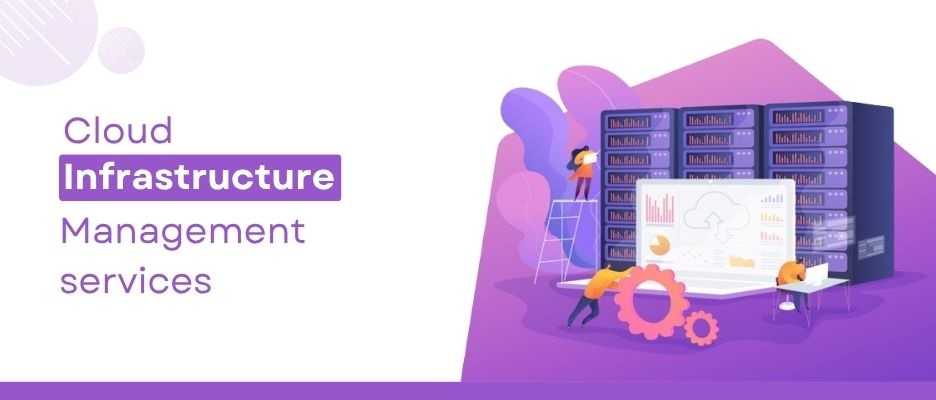
So much has changed in the past few years, especially if we talk about the IT industry. In the past, businesses used bulky servers and massive storage rooms to keep their data safe and run their software. Companies had to invest heavily in hardware, maintenance, and IT staff just to keep everything working. With the improvement of technology, there was an improvement in how we handle data.
Today, we do not have to rely on huge machines in our office. Rather, we can now save data, execute programs, and use computing capacity anywhere and everywhere over the internet. This all happened due to cloud computing services.
The cloud has transformed the way we conduct businesses. Small and large businesses can enjoy the benefits of high speed processing speed, limitless storage and save money. With cloud solutions, businesses can develop without the concern of IT aspect of development.
In this blog post, we will discuss how cloud computing is used, service models for the cloud, and how a trusted managed cloud services provider can ultimately help you remain secure and build your future.
How Does Cloud Computing Work?
Cloud computing works by providing various IT services over the internet rather than using a nearby server or a physical infrastructure. Some of the services are storage of data, computing power, application software, and databases.
Instead of buying and maintaining in-house hardware and software, Businesses now utilize the services of remote servers that are hosted by data centers. These centers are operated by the best cloud providers, where businesses store and access their hardware and software as a service. This enables the companies to work at a quicker pace, save costs, and remain more agile.
Cloud Architecture
The cloud works because of a carefully designed structure made up of various parts that talk to each other and perform different roles. This is what we call cloud architecture. The three core parts of cloud architecture are servers, networks, and databases. Together, they create a strong system that powers cloud services.
Here’s how each component functions:
1. Servers
Servers are physical or virtual machines that hold your data, software, and applications. They reside in large data centers and are operated by cloud suppliers. When you interact with your app or data, you are accessing these servers in real-time.
Cloud infrastructure managed service offers peace of mind, knowing that the cloud infrastructure powered by these servers is maintained, patched, secured, and operating as an efficient machine. It monitors traffic spikes, backups, maintenance, etc. to allow for non-interrupted services.
2. Networks
It is the network that connects everything. It is the enabler of effortless communication between your devices and the cloud. And, it connects servers, databases, storage, and all other components inside the cloud.
Cloud providers build complicated and fast networks that allow your data to traverse the globe in a speedy and secure manner. With cloud infrastructure management services, your data is secure, even as it travels between locations.
3. Databases
Cloud databases are used for storing and managing data. You will have an option of database types for your needs.
Relational Databases (SQL) - These databases are tables and are fully structured. MySQL, PostgreSQL, and Microsoft SQL Server are examples.
NoSQL Databases - These databases are mostly unstructured and store and handle large amounts of data. They work great for real-time apps, big data, and content-heavy platforms. Some examples are MongoDB, and Cassandra!
Storage systems: Apart from databases, there are storage systems designed to hold big files, backups, and media content. Cloud storage can grow as your business needs more space, without you needing to buy new hard drives.
Major Cloud Service Providers
There are a few leading names within the cloud computing space that make up the backbone of these services. These companies own and operate secure, high-performance data centers worldwide, providing cloud computing services to developers and businesses around the world.
The primary cloud providers include:
Amazon Web Services (AWS): Amazon Web Services (AWS): Amazon Web Services is the biggest cloud provider worldwide, where it provides extensive tools and services in computing, storage, machine learning, and others. It has shares in the world cloud of around 31 percent.
Microsoft Azure: Azure is a strong competitor of Amazon, and its market share is approximately 20 percent. It is particularly trendy with firms that already use Microsoft products. Companies use Azure IaaS services and PaaS extensively to execute apps and manage loads.
Google Cloud Platform (GCP): Google Cloud is known for its data analytics and AI tools. It provides competent services to developers, especially those in the fields of tech and media, and occupies an approximate 7 percent share.
Alibaba Cloud: It is a leader in Asia with approximately 6 percent of the world's shares. It is becoming trendy for business enterprises that are moving within the Asian market.
All these providers have managed cloud services that assist businesses in relocating their operations to the cloud, managing them effectively, and maintaining their security.
In the case of working with a managed cloud services provider, all these parts are taken care of by them. They ensure your cloud infrastructure is always updated, safe, and well operational. Cloud infrastructure management services and cloud infrastructure managed services help you to stay out of downtime and safeguard your data without having to spend a lot on an in-house IT team.
Different Types of Cloud Computing Models
There are several types of cloud computing service models, each designed to meet different needs.
Infrastructure as a Service (IaaS): It allows for the rental of basic IT resources such as servers, storage, and networks on a pay-as-you-go basis. Azure IaaS service is a great example that allows a client organization to avoid the cost of purchasing and maintaining expensive hardware. One nice aspect about IaaS resources is that they provide flexibility and lower costs with the ability to quickly scale.
Platform as a Service (PaaS): Here, service providers offer a comprehensive platform as a service in cloud computing to build, run ,and manage applications without having to think about servers and databases. It saves time and money to use a cloud computing provider’s Platform as a Service. Popular examples of PaaS are Heroku and Microsoft's azurePaaS.
Software as a Service (SaaS): Provides software that is immediately ready to go online. You log in, and you start working - there is no installation or maintenance! Salesforce and Google Workspace are great examples and are ideal for organizations seeking simple, hassle-free options.
Function as a Service (FaaS), or serverless computing, allows developers to run code without managing servers. You pay only for the resources you use, making it ideal for lightweight apps and fast deployments.
Why work with a Managed Cloud Services Provider
Cloud management can be difficult at times. Managed cloud service providers can manage everything from setup and security to maintenance and monitoring.
Managed cloud services providers can assist businesses in transferring workloads to the cloud and managing cloud-based workloads on a day-to-day basis to ensure that tasks run seamlessly.
Managed cloud services providers also manage compliance, backups, and disaster recovery to ensure that business data will never go missing in the cloud. Hiring a managed cloud services provider also eliminates the huge labour and operational costs, and allows you peace of mind knowing that a trusted and knowledgeable organization is managing your mission-critical systems.
Final Words
In the end, it does not matter whether you're a small startup or a large enterprise; moving to the cloud can completely change how you work. You can remain flexible, secure, and prepared to grow with the right combination of services, such as the Azure IaaS services that give scalable infrastructure and platform as a service in cloud computing as a faster development of applications.
Of course, it is possible to do this yourself, but if you have a trusted partner, it does make it easier. At Kindlebit Solutions, we have assisted countless businesses in migrating to the cloud successfully. From the initial planning phase to set up and ongoing support, you can leave it to us and concentrate on what you do best.
Are you ready to unlock the power of the cloud for your business? Kindlebit Solutions can help!








